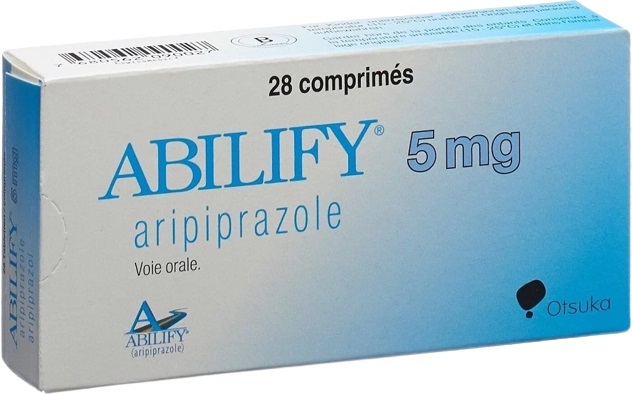Abilify Ruined My Life – Real Stories of Lives Disrupted

Imagine taking a medication like Abilify to feel better, but it ends up causing new problems. It happens to many people.
So, why are people saying that Abilify ruined their life?
Judy experienced persistent tardive dyskinesia from low-dose Abilify for 18 months. Chica’s brief encounter caused severe weight gain and diabetes. Bryan’s struggle with bipolar disorder led to restlessness, slurred speech, and involuntary movements. Stan suffered cognitive impairment, affecting memory. Jewel, prescribed after a heart attack, felt physically and mentally paralyzed.
This article is about people who believe Abilify harmed them. We’ll talk about their struggles, what’s not so great about the medicine, and how to stay safe if you take it.
What Is Abilify?

Abilify, also referred to as Aripiprazole is a medication utilized in the treatment of various mental health conditions. Its primary mechanism involves interacting with specific receptors for brain chemicals like dopamine and serotonin.
These chemicals hold significant roles in regulating mood and behavior, making Abilify an effective therapeutic option.
Uses
- Treats schizophrenia in adults and children aged 13 and older.
- Manages manic or mixed episodes related to bipolar I disorder in adults and children aged 10 and older.
- Alleviates irritability associated with autism in children aged 6 and older.
- Helps with Tourette’s syndrome in children aged 6 and older.
- Approved for use with antidepressants in adults with major depressive disorder (MDD).
- Off-label use for conditions like anxiety disorders and ADHD (under study).
How It Works
Abilify’s precise mechanism remains partially understood within the scientific community. However, it is believed to exert its influence on brain receptors associated with dopamine and serotonin.
Through modulating these key neurotransmitters, Abilify plays a crucial role in regulating mood, thoughts, and behaviors, thereby proving effective in managing various mental health conditions.
Abilify Ruined My Life: Unveiling the Impact of Abilify

I’m now sharing people’s stories and reviews about Abilify. By reading these, you’ll gain insight into how Abilify has had a negative impact on the lives of others.
Judy’s Battle with Tardive Dyskinesia
Judy’s story serves as a strong cautionary tale about the potential long-term consequences of Abilify. Despite being prescribed a low dosage for eight months, she experienced persistent tardive dyskinesia of the mouth for over a year.
This incapacitating condition left her questioning her psychiatrist’s awareness regarding the severe side effects. Judy’s experience underscores the importance of understanding the risks associated with Abilify.
Chica’s Weight Gain And Diabetes
Chica’s brief encounter with Abilify resulted in severe weight gain and the development of diabetes in just three months.
Disappointed that the medication did not relieve her depression and concerned about her deteriorating health, Chica’s story sheds light on the unexpected consequences of taking Abilify.
Bryan’s Struggle With Bipolar Disorder
Bryan’s journey with Abilify began when he sought a solution for managing his bipolar disorder. Unfortunately, the medication triggered severe restlessness, pacing, and involuntary movements of the tongue.
Alongside these effects, his speech became slurred. Bryan stresses the significance of transparent communication with psychiatrists and highlights the potential for enduring side effects.
Stan’s Cognitive Impairment
Stan’s experience with Abilify reveals a less-reported side effect – cognitive impairment. He experienced that the medication had a dulling effect on his mental abilities, affecting his memory and cognitive functions in a negative way.
His story stands as a clear reminder that side effects can vary significantly from one individual to another.
Jewel’s Paralyzing Experience
Jewel’s story took a harrowing turn when she was prescribed Abilify after a stress-induced heart attack. She describes feeling paralyzed both physically and mentally while on the medication.
Despite her inability to refuse further treatment, she highlights the importance of informed consent and the potential for severe reactions to Abilify.
Side Effects Of Abilify
Common Side Effects of Abilify (Aripiprazole)
- Nausea
- Vomiting
- Headache
- Insomnia
- Weight gain
- Dizziness
- Anxiety
- Constipation
- Movement disorders
- Restlessness
- Blurred vision
- Drooling
- Drops in blood pressure when standing up
- Choking or trouble swallowing
- Sleepiness (especially in children)
- Increased appetite and weight gain in children
Serious Side Effects of Abilify
- Seizures
- Involuntary muscle movements (Tardive Dyskinesia)
- Neuroleptic Malignant Syndrome (a rare, life-threatening reaction)
- Metabolic changes, including weight gain, increased cholesterol, and more
- Suicidal thoughts and behaviors, especially in younger individuals
- Increased risk of death in elderly dementia patients
- Impulse control disorders lead to behaviors like compulsive gambling, hypersexuality, compulsive shopping, and binge eating.
- Obsessive-compulsive thoughts and behaviors
- Withdrawal symptoms when stopping Abilify abruptly (anxiety, panic attacks, sweating, etc.)
Abilify And Suicidal Thoughts
Abilify carries a boxed warning issued by the FDA. This warning is specifically related to the increased risk of suicidal thoughts and behaviors associated with its use, particularly among individuals aged 24 years and younger.
It is particularly important to be cautious when using Abilify to treat depression at this age. However, it should be noted that Abilify is not intended for individuals under the age of 18.
Therefore, careful monitoring and open communication with healthcare professionals are paramount, especially when considering Abilify’s usage among younger patients.
Abilify and Elderly Dementia Patients
For individuals aged 65 and above who experience dementia-related psychosis, using Abilify comes with an increased mortality risk. This risk is specifically associated with antipsychotic medications like Abilify and is emphasized through a prominent warning on the medicine label.
The exact causes behind this heightened mortality risk are intricate, potentially involving factors such as an elevated likelihood of strokes, cardiovascular events (e.g., heart attacks), and severe infections like pneumonia.
In cases where there exists a significant chance of self-harm or harm towards others, healthcare providers may prescribe Abilify; however, its utilization necessitates careful consideration of the potential benefits and risks under professional supervision.
Abilify And Neuroleptic Malignant Syndrome (NMS)
Neuroleptic Malignant Syndrome (NMS) is an uncommon yet life-threatening reaction that can occur as a side effect of antipsychotic medications, such as Abilify.
This condition manifests through various symptoms, including fever, changes in mental state, muscle stiffness, and dysfunction of the autonomic nervous system.
The latter controls crucial bodily functions like breathing and heart rate. NMS is a severe condition that requires immediate medical attention. Although rare, its potential occurrence underscores the importance of monitoring and discontinuing Abilify if these symptoms arise.
Abilify And Tardive Dyskinesia (Uncontrolled Body Movements)
Tardive Dyskinesia (TD) is a serious side effect of Abilify, characterized by involuntary muscle movements, particularly in the lower face. TD can manifest after several months or even as early as six weeks of taking Abilify.
While it may subside after discontinuing the medication in some cases, it can also become a permanent condition. Patients taking Abilify should be closely monitored for any signs of TD, especially for extended periods.
Abilify Weight Gain
Abilify has been linked to weight gain, especially in children. Research studies indicate that young individuals, with an average age of 18, gained around 2.7 kilograms (equivalent to 6 pounds) while using Aripiprazole.
Prolonged use of Abilify was found to correlate with more substantial weight gain. Although adults are generally less prone to experiencing weight changes compared to other antipsychotic medicines when taking Abilify, it remains a potential concern.
Healthcare professionals should be mindful of this side effect when prescribing Abilify and closely monitor patients for any fluctuations in weight during treatment.
Abilify Hypersexuality
Abilify has been associated with various impulse control side effects, including hypersexuality. This occurrence involves individuals experiencing heightened sexual desires and behaviors while using the medication.
Some individuals exhibit certain behaviors when affected by impulse control disorders linked to antipsychotic medications like Abilify. These include engaging in unprotected sex, compulsive masturbation, having multiple sexual partners, participating in sexting or sharing explicit images of themselves, and even engaging in extramarital affairs.
According to FDA data, approximately 34% of individuals experience uncharacteristic hypersexual thoughts or behaviors while taking Abilify. It’s important to note that these side effects usually diminish once the medication is discontinued or the dosage is reduced.
Abilify Withdrawal Symptoms
It’s essential to understand that abruptly stopping Abilify or any psychiatric medication is not recommended. Doing so without proper medical guidance can lead to severe withdrawal symptoms.
When considering discontinuation, it’s crucial to consult with a healthcare provider to ensure a safe and manageable process.
Withdrawal symptoms from Abilify can vary from person to person but often include:
- Dizziness
- Headaches
- Fatigue
- Nausea
- Anxiety
- Insomnia
- Depression
In rare instances, ceasing the use of Abilify suddenly may result in more severe symptoms like tardive dyskinesia, which includes muscle spasms and tremors.
The timeline for withdrawing from Abilify can vary. Generally, individuals may experience symptoms within a week after discontinuation that gradually subside over four weeks.
However, the withdrawal experience can be influenced by various factors such as the duration of medication use, dosage, age, and overall health.
How To Safely Stop Taking Abilify And Minimize Withdrawal Symptoms?
To cope with Abilify withdrawal and minimize symptoms, several strategies can be helpful:
- Gradual Tapering: The safest method for discontinuing Abilify is to collaborate closely with a healthcare professional to gradually decrease the dosage. This approach allows the body to adapt slowly to the absence of the medication, reducing the risk of severe withdrawal symptoms.
- Healthy Lifestyle: Prioritize getting adequate restful sleep, engaging in regular exercise, and consuming nutritious meals. These lifestyle modifications can help manage mood and physical symptoms during withdrawal.
- Open Communication: Keep open communication with your healthcare provider and share any changes in thoughts or behaviors. It’s essential to monitor your mental health closely during this transition.
- Therapeutic Support: Consider seeking counseling or therapy to help manage anxiety, depression, or other emotional challenges that may arise during Abilify withdrawal.
Frequently Asked Questions (FAQs)
How Long Does Abilify Stay In Your System?
Abilify generally remains detectable in your system for about 17 to 34 days after discontinuation, with the majority of individuals completely eliminating the medication within a span of two months. However, it’s essential to note that the precise duration can differ depending on individual factors, including genetics, dosage, and metabolism.
How Successful Is Abilify?
The success of Abilify varies among individuals. Based on reviews from Drugs.com, approximately 48% of users reported positive experiences, while 35% reported negative ones. To determine if Abilify is the appropriate treatment option for your specific condition and needs, it is crucial to consult with a healthcare professional.
Can Aripiprazole Be Stopped?
Yes, Aripiprazole can be stopped, but it’s crucial to do so under the guidance of your doctor to prevent the return of old symptoms and manage potential withdrawal symptoms like headaches, nausea, and sleep problems safely.
Conclusion
In conclusion, the stories of Abilify ruined my life is a sentiment echoed by those who have experienced a range of debilitating side effects, from Tardive Dyskinesia to weight gain, hypersexuality, and withdrawal symptoms.
It is crucial to approach Abilify use with caution, particularly in younger and elderly populations, and under the careful guidance of healthcare professionals.





